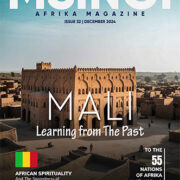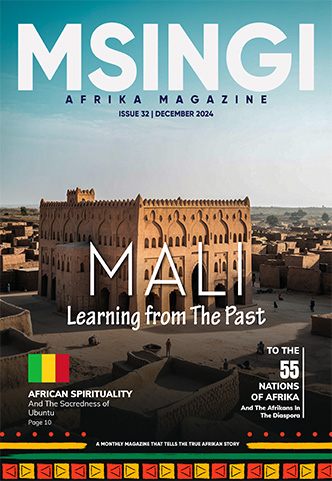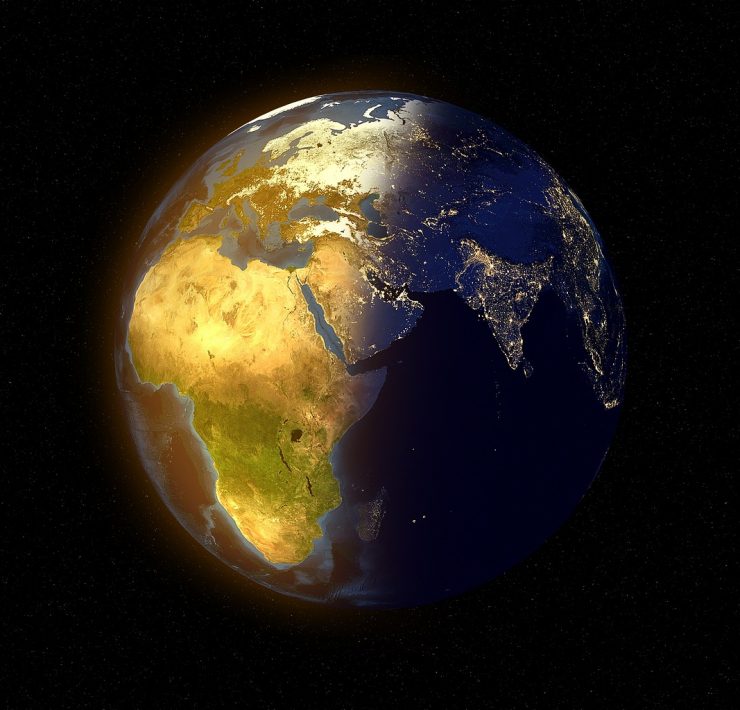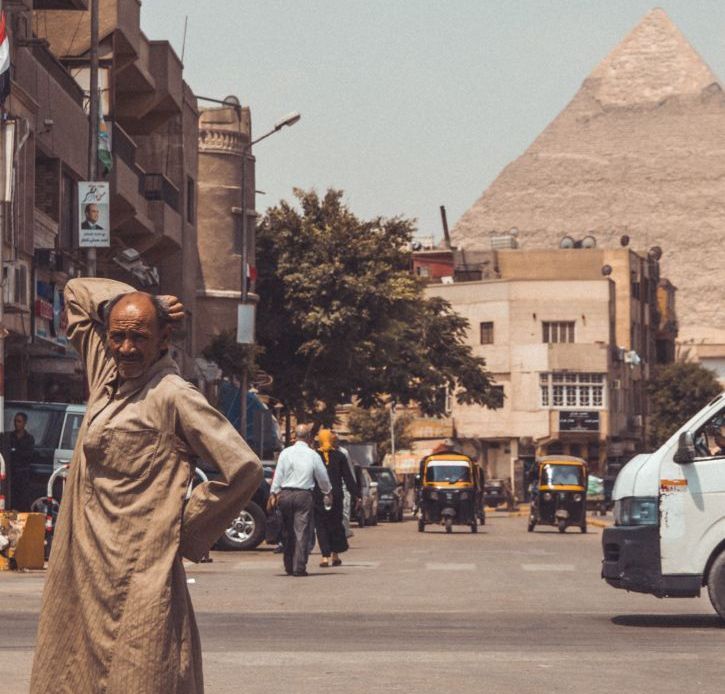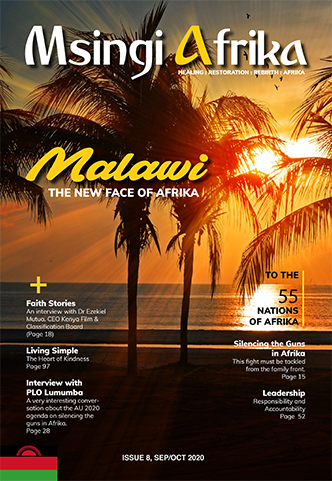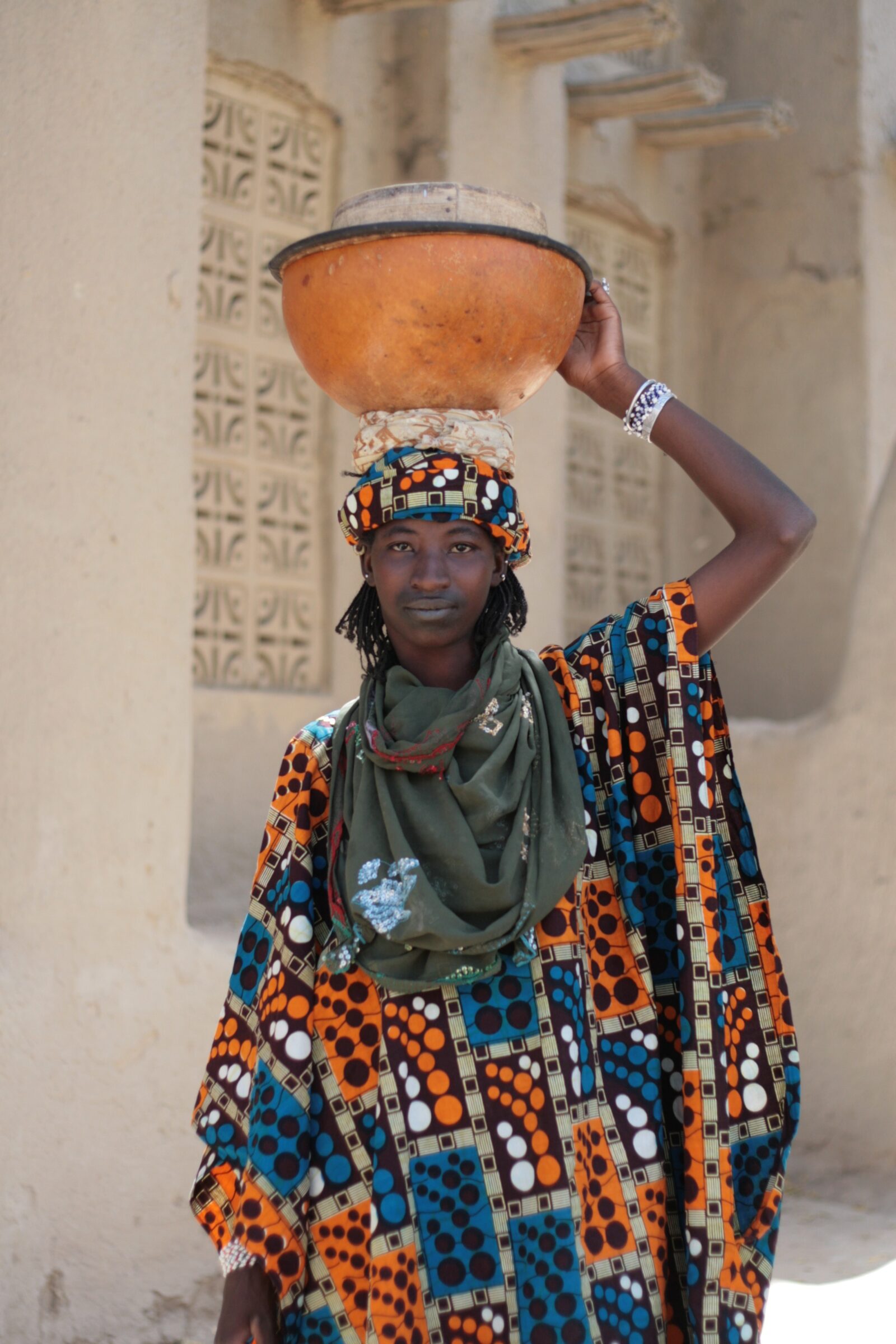
Samuel Phillips is a writer, graphic designer, photographer, songwriter, singer…
Read Next
LEARNING FROM THE PAST
Life is very dynamic. Whatever was has a way of returning to become what is now or what will be tomorrow. So technically, today is just the tomorrow that we talked about yesterday and knowledge is a stream that flows in a circle, allowing us to drink from that which was in ancient times while also giving us the room to share the circle with the next generation.
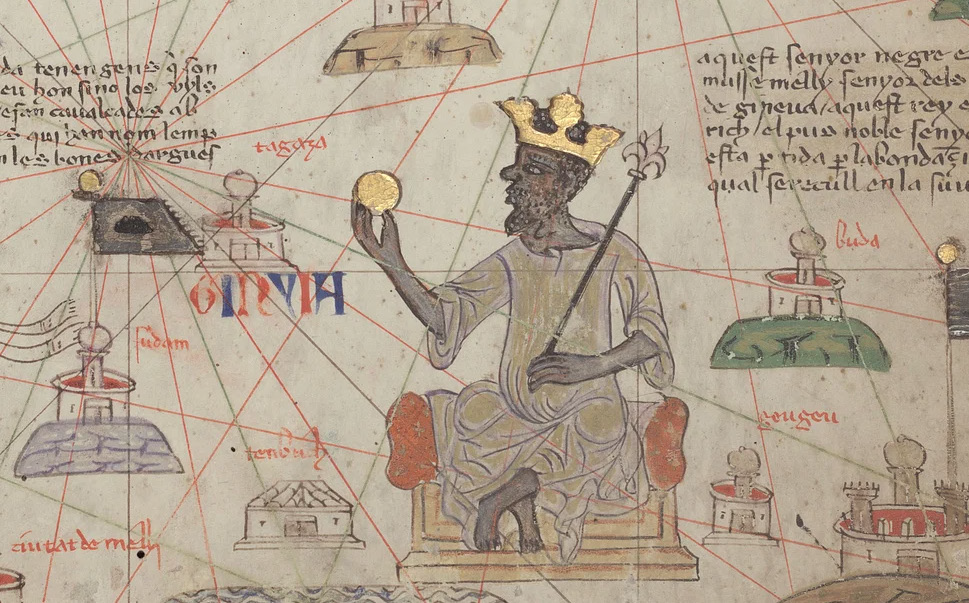
When it comes to learning from the past or drinking from the fountain of knowledge of ancient times, Africans tend to cast their eyes on ancient Kemet. However, ancient Kemet is only one of the many centers of knowledge in ancient Africa, though the most popular. Also, when Africans talk about the ancient Mali empire, it always seems to be from the perspective of the great Emperor Mansa Musa of Mali. But ancient Mali was known for diverse things and we will take a look at some of the things it was known for and just maybe we will glean some knowledge and wisdom from that era.
Learning from the past is not just about reading books of history, but also about listening to those who are of the past, I mean the older people.
Ancient Mali Empire
I will be gleaning a few excerpts from an article written by Mark Cartwright and published on World History Encyclopedia.
“The Mali Empire (1240-1645) of West Africa was founded by Sundiata Keita (r. 1230-1255) following his victory over the kingdom of Sosso (c. 1180-1235). Sundiata’s centralised government, diplomacy and well-trained army permitted a massive military expansion which would pave the way for a flourishing of the Mali Empire, making it the largest yet seen in Africa.”
“The reign of Mansa Musa I (1312-1337) saw the empire reach new heights in terms of territory controlled, cultural florescence, and the staggering wealth brought through Mali’s control of regional trade routes. Acting as a middle-trader between North Africa via the Sahara desert and the Niger River to the south, Mali exploited the traffic in gold, salt, copper, ivory, and slaves that crisscrossed West Africa. Muslim merchants were attracted to all this commercial activity, and they converted Mali rulers who in turn spread Islam via such noted centres of learning as Timbuktu. In contrast to cities like Niani (the capital), Djenne, and Gao, most of the rural Mali population remained farmers who clung to their traditional animist beliefs. The Mali Empire collapsed in the 1460s following civil wars, the opening up of trade routes elsewhere, and the rise of the neighbouring Songhai Empire, but it did continue to control a small part of the western empire into the 17th century.”
“The Mali rulers had a triple income: they taxed the passage of trade goods, bought goods and sold them on at much higher prices, and had access to their own valuable natural resources. Significantly, the Mali Empire controlled the rich gold-bearing regions of Galam, Bambuk, and Bure. One of the main trade exchanges was gold dust for salt from the Sahara. Gold was in particular demand from European powers like Castille in Spain and Venice and Genoa in Italy, where coinage was now being minted in the precious metal.”
“Timbuktu, founded c. 1100 by the nomadic Tuaregs, was a semi-independent trade port which had the double advantage of being on the Niger River bend and the starting point for the trans-Saharan caravans. The city would be monopolised and then taken over by the Mali kings who made it into one of the most important and most cosmopolitan trade centres in Africa. Through Timbuktu there passed such lucrative goods as ivory, textiles, horses (important for military use), glassware, weapons, sugar, kola nuts (a mild stimulant), cereals (e.g. sorghum and millet), spices, stone beads, craft products, and slaves. Goods were bartered for or paid using an agreed upon commodity such as copper or gold ingots, set quantities of salt or ivory, or even cowry shells (which came from Persia).”
“Islam in West Africa really took off, though, from the reign of Mansa Musa I. He famously went to Mecca and, impressed with what he saw on his travels, Mansa Musa brought back home Muslim architects, scholars, and books. Mosques were built such as Timbuktu’s ‘Great mosque’ (aka Djinguereber or Jingereber), and Koranic schools and universities were established which quickly gained an international reputation. Studies were actually much wider than religion and included history, geography, astronomy, and medicine, making the city famous far and wide for its doctors. Great libraries were built up with tens of thousands of books and manuscripts, many of which survive today.”
As always, every venture, whether good or bad, will end at some point and so did the Mali Empire. The Mali Empire was in decline by the 15th century CE as trade routes opened up elsewhere and several rival kingdoms developed to the west, notably the Songhai. European ships, especially those belonging to the Portuguese, were now regularly sailing down the west coast of Africa and so the Saharan caravans faced stiff competition as the most efficient means to transport goods from West Africa to the Mediterranean and the Middle East. In addition, by the mid-15th century CE, the Portuguese had direct access to the Akan Forest goldfield, reducing the trade possibilities for Timbuktu. The Tuareg, led by their chief Akillu, attacked and took over the city from 1433 CE. There were also sporadic attacks by the Mossi people, who then controlled the lands south of the Niger River. C. 1468 CE, King Sunni Ali of the Songhai Empire (r. 1460-1591 CE), who was vehemently anti-Muslim, conquered Timbuktu.
Present Day Mali
It’s very interesting to me that when you search for Mali online right now, what you mostly find are fragments of information about the present-day military regime, which, by the way, is made to look ugly, I guess deliberately so. A few articles talk about the Malian culture and traditions, art, and then largely poverty, and insurgency but most of the information is on ancient Mali. But what does it mean? What happened to the greatness, wealth, military might, and grandiosity that ancient Mali was known for and why does it not reflect in modern-day Mali? What happened to the knowledge systems that were created in ancient Mali and which made Mali a center of learning for the world just as ancient Kemet was? I am pretty sure the answer is the same for every part of Africa and why the descendants of the once highly organized ancient kingdoms and empires in Africa cannot create or keep a sane system of governance in place or let’s say, in peace. A deliberate machinery that is created, engineered, and oiled to constantly make everything in Africa a shadow of what it should be. But who is to blame? The answer is Africans.
What can we learn?
There are various reasons why ancient African kingdoms and empires like Mali became great and endured for centuries. But let me just touch on a few. And this is not in any order of importance.
Military power: I have said this over and over again and will repeat it yet again. No nation on earth, especially with the madness of globalization going on, can stand and speak in the global system if it cannot defend itself against other nations’ military aggression or oppression. It’s just not possible. Military power is one of the many factors that helped to build such amazing ancient African kingdoms and empires. And we need to learn from that. The present world system is designed to stand on the faulty Western foundation or philosophy that says only the strong survive in the jungle. If this is true like they make it appear, how come they don’t ever start such statements by calling themselves wild animals who live in the jungle who must use the faulty ideology of the jungles? Instead, they tell you they are developed, and civilized and your African countries are third-world and poor. But we have seen what happens in the streets of these so-called civilized nations when an incident happens and there is a power cut. The streets are instantly wild with human-wildlife looting shops and smashing vehicles parked on the streets.
My point is, that the so-called civilization of the West or Europe, for which they flaunt their muscles and poke their noses in things that should not concern them in Africa and also get away with doing so, is because no African nation presently has enough military power to stop foreign military aggression. So, when an Ibrahim Traoré of Burkina Faso or an Assimi Goïta of Mali decides they have had enough of the madness, they are painted with the brush of “dictators” and “militias” and not as patriots who are fighting to liberate their nations from age-long foreign oppressions.
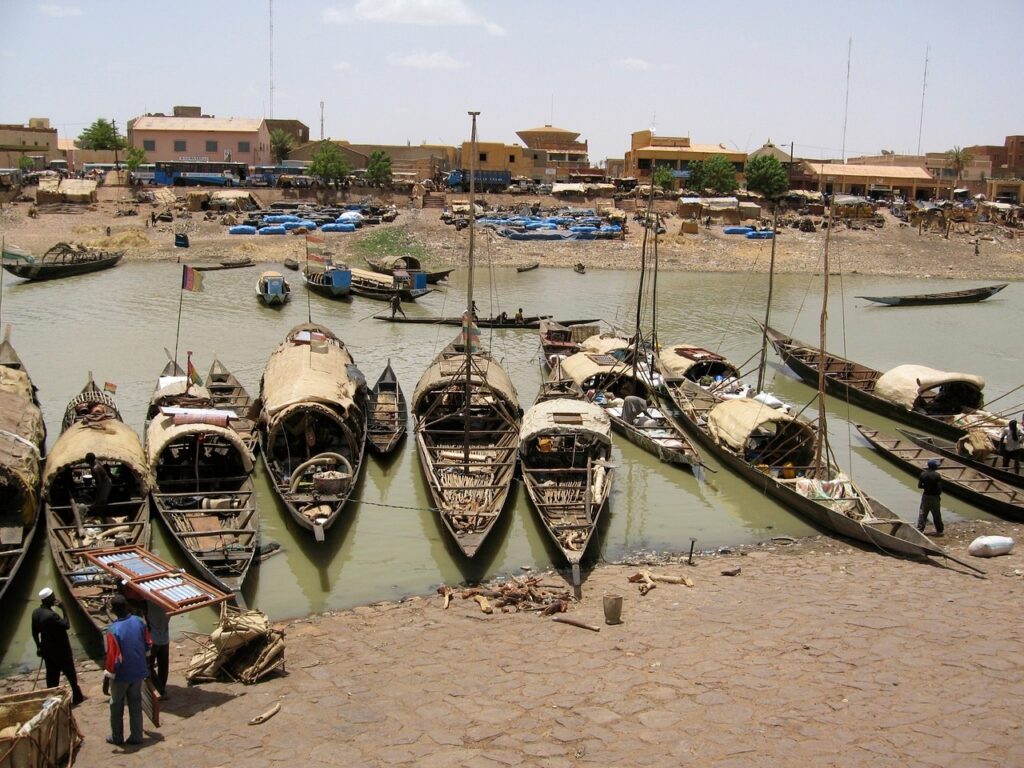 PIN IT
PIN ITTrade in local resources among themselves: This is one of the major reasons why ancient kingdoms and empires became very wealthy and expanded beyond what was possible in their time. They knew the power of trade to generate both physical wealth and the influence that comes with such wealth. Present-day African countries are still failing in this regard. We speak of unity and the many advantages of unity among Africans, but we love too much the chicken and chips of Europe, and it’s making us blind and weak in tackling global issues that directly affect us. The idea of the unity and partnership of African countries in trade is not some luxury idea, it’s a way of survival. The balkanization of the landmass called Africa was an intentional idea of the Berlin conference to make sure Africa never could summon its entire population to unite for anything meaningful. And this was more than a century ago. But why are we still giving power to this idea that is not helpful for the emancipation of Africa? It does not make sense to fly out of the continent of Africa and then route back to connect with another African country, simply because we told ourselves that the so-called airspaces belong to our various African countries and we determine who we want to pass through. How stupid that sounds. Really!
Foreign debts were unknown: In all my reading about African kingdoms and empires or even simple African communities, foreign debts are never mentioned as a thing or a modus operandi for nation or community building. They lived within their means and the madness of individualism and consumerism that has become a cancer in the bones of the people of the world was not known then. As we all can see from the various information that shows up in the public domain every now and then, modern-day debt that nations are compelled to take is not because the nations themselves need it, but because the creditor is obsessed with the control of those indebted nations. Africa must break free from this. In fact, a few days before writing this article, I saw a couple of video headlines on YouTube stating that the President of Mali Assimi Goïta announced that all debt that Mali owes has been paid and that Mali is not a poor country. If that is true, then that is a major first in modern African history and should be emulated by all.
Indigenous knowledge systems: No nation can grow if it continues to undermine its indigenous knowledge systems while embracing foreign ideologies that are not fit for its local needs. For instance, in the area of architecture, if the earthen buildings in Timbuktu have been there for hundreds or thousands of years, and we have the same examples all over Africa, why then are we not enabling such architectural genius and let our cities and towns be filled with them? Why are we building concrete jungles everywhere using cement which amounts to close to 40% of global greenhouse emissions? And this is just one example. Another example, we live in the tropics where it’s hot most of the time. Why do we wear suits and ties to the office when we can wear our beautiful and climate-suited woven clothes that allow our bodies to breathe properly? How is it so hard to let go of things that undermine our ability to develop our Indigenous knowledge and then complain of foreign control?
Prayer for Mali
I have never been to Mali but I am still very positive that I will travel to every nation of Africa before my time is up on this planet. But, in the interim, I share my thoughts in prayer for Mali.
You, Mali, are known for great and mighty exploits and your history is full of such stories. But the enemies that came into your land are aware of your abilities and they are doing everything they can to derail whatever good thing is possible in your land. I pray that you will be strengthened divinely to withstand every evil thrown at you and your success will be a great example for other African countries in nation-building. You are blessed, so remain blessed, and also flourish beyond what your forebears were able to achieve in their time.
Subscribe now for updates from Msingi Afrika Magazine!
Receive notifications about new issues, products and offers.
What's Your Reaction?
 PIN IT
PIN ITSamuel Phillips is a writer, graphic designer, photographer, songwriter, singer and a lover of God. As an Afrikan content creator, he is passionate about creating a better image and positive narrative about Afrika and Afrikans. He is a true Afrikan who believes that the true potential of Afrika and Afrikans can manifest through God and accurate collaborations between Afrikans. Afrika is the land of kings, emperors, original wisdom, ancient civilizations, great men and women and not some road-side-aid-begging poor third world continent that the world finds joy in undermining.









